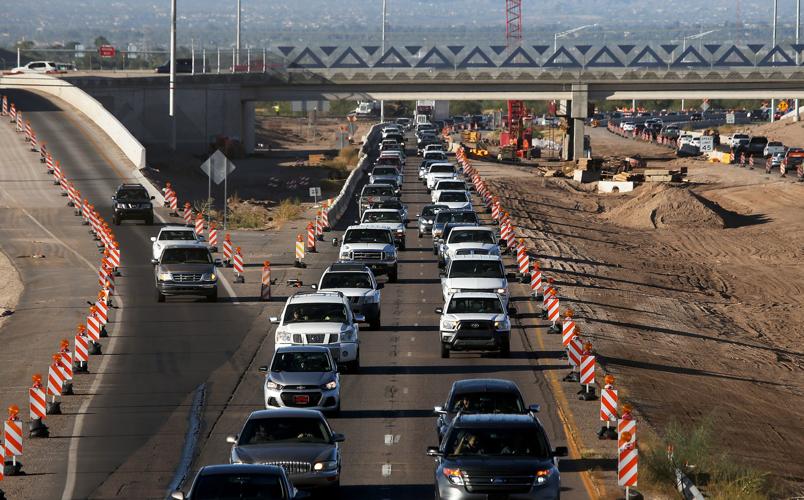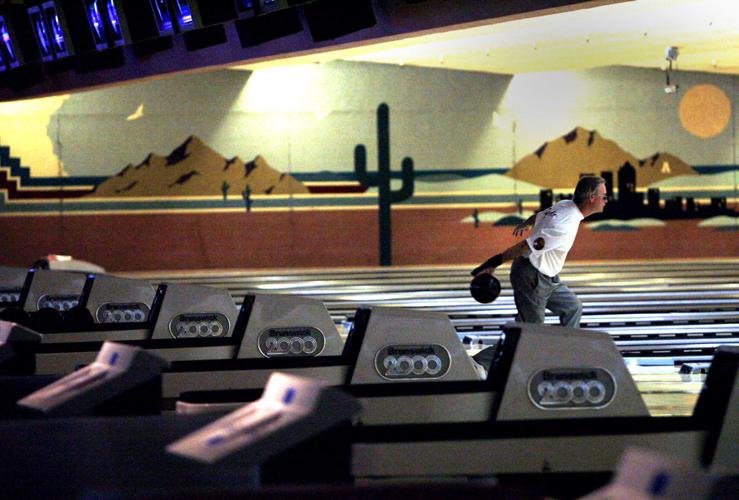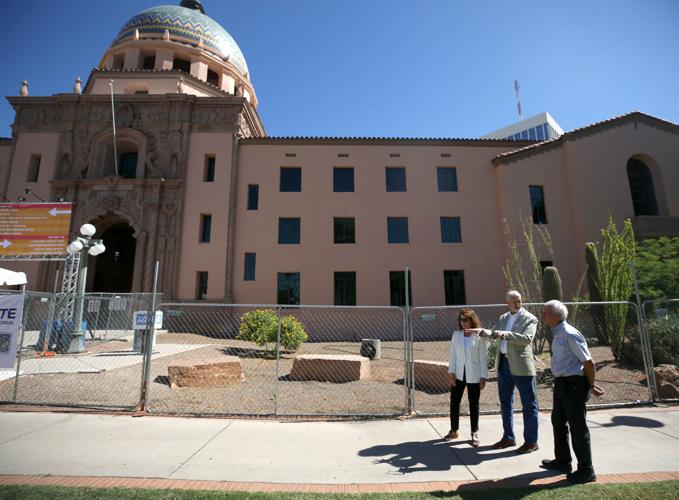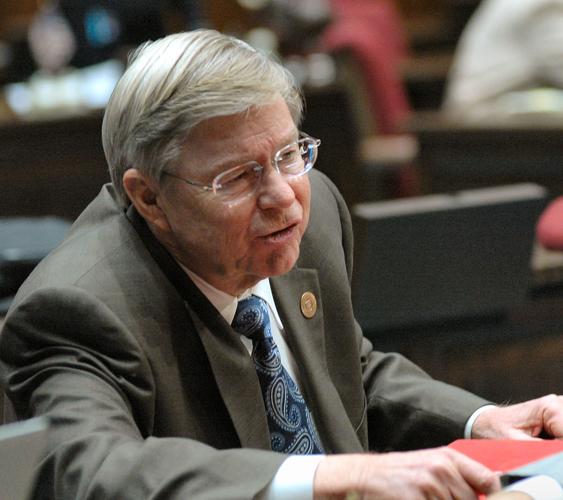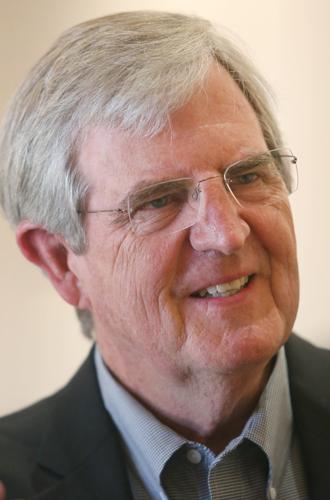PHOENIX — A proposal to let Pima County voters decide whether to double their transportation taxes cleared a key hurdle Wednesday despite a plea by one Tucson senator to quash the plan.
Current law allows the county’s Regional Transportation Authority to impose a one-half-cent sales tax for road projects. House Bill 2109 would empower the board to seek a full penny when it asks voters in the next few years to extend the levy.
The 5-3 approval by the Senate Committee on Transportation and Public Safety came despite arguments that Pima County should not be permitted to increase the burden on taxpayers because it has not properly spent money it already is getting for roads.
That included claims that the county has spent its share of state highway funds on everything from a bowling alley to soccer fields and a memorial for the victims of the 2011 attack that killed six and seriously wounded Gabrielle Giffords.
People are also reading…
Pima County Administrator Chuck Huckelberry had his own take on those assertions.
“When you can’t win an argument with logic, you just make stuff up,” he said.
Huckelberry said the Golden Pin bowling alley on Miracle Mile was purchased with general fund dollars to convert it to a county service center. The memorial, he said, is being constructed solely with private donations though the county did the archaeology work because the site is on county property.
And those soccer fields, he said, are financed by taxes on rental cars, hotel rooms and revenues from events.
Huckelberry said foes are confusing unrestricted cash the county gets from vehicle license fees with the Highway User Revenue Fund dollars that can be spent only on specified transportation projects. He said it would be illegal for the county to use HURF dollars on anything else.
Mike Racy, who lobbies for the RTA, pointed out that a special audit of existing county bonds, ordered by the Legislature, found that the money raised was spent in accordance with what voters authorized.
That did not deter Sen. Vince Leach, R-Tucson, who told the committee it makes no sense to allow a higher tax on Pima County residents — even one they would have to approve at the ballot box — given what he said is an already high debt and questions about where approved dollars have gone.
He said Pima County’s total long-term debt equals about 70 percent of the total debt of all counties statewide.
That’s true, Racy acknowledged, but he said it paints only part of the picture.
He said that $1.2 billion figure for the Pima debt — one he said is out-of-date anyway — reflects the fact that Pima County has more people living in unincorporated areas than any other county. That means the county is responsible for funding urban-style improvements, such as parks, which in a place such as Maricopa County are more likely to be handled by one of the dozens of incorporated communities.
The road-tax dispute has pitted key elements of the business community against Republicans Leach, Pima County Supervisor Ally Miller and Christopher King, who is a member of the GOP’s state executive committee.
“This is not just wrong,” King told lawmakers. “It is pure evil.”
That divide is likely to play out again on the streets of Pima County if the measure authorizing a vote on a higher tax gets approval of the full Senate, where it now goes.
But the proposal also picked up opposition from the town of Marana. Lobbyist Lourdes Peña said representatives of her community were not directly involved in the stakeholder meetings that led to this legislation.
“While we understand the needs for additional funding, we understand that this bill could potentially enable a significant tax increase for our taxpayers in our town,” Peña said. “And we cannot support a proposal that does not outline or provide us any insurance of what the spending plan will be moving forward.”
As to the first half of that argument, Leach said that adding a half-cent to the road tax would raise the overall sales tax rate in Marana to 8.6 percent. On top of that, he said, the town is facing costs of dealing with pollution that ruined two wells, with the $15 million cost of that expected to add another four-tenths of a cent.
Ted Maxwell, president of the Southern Arizona Leadership Council, supports the proposal.
“This is not a tax increase, and this is not enabling Pima County government,” he said. “It’s enabling the Regional Transportation Authority,” which includes elected officials from all governments within the county, all having an equal vote on the board when it comes to creating a plan for how tax dollars will be spent.
Maxwell said any plan has to get approval of not just the RTA board but also the county supervisors. And then it goes on the ballot where there would be two separate votes, one for the higher levy and one to approve the spending plan.
“What we’re asking for is self-determination,” he said, pointing out that 13 of the other 14 counties in the state already have this authority.
Robert Medler, vice president of the Tucson Metropolitan Chamber of Commerce, argued that a higher tax is needed to improve the economic health of the area.
“We have to create wealth in our community,” he said. “But it doesn’t just happen.”
Medler said the chamber and allied entities have regular interactions with corporate officials who are involved in selecting sites for new or expanded businesses.
One of their big issues, he said, is having a sufficiently trained workforce.
“And the second is our roads and our infrastructure system, why they don’t pick our region,” he said, with those site selectors instead choosing areas where both are better.
In choosing to vote for the plan — and against what Leach had argued — Sen. Sonny Borrelli, R-Lake Havasu City, said it sounds to him as if any problems that do exist are with Pima County. He said all indications are that the separate RTA is functioning well.



